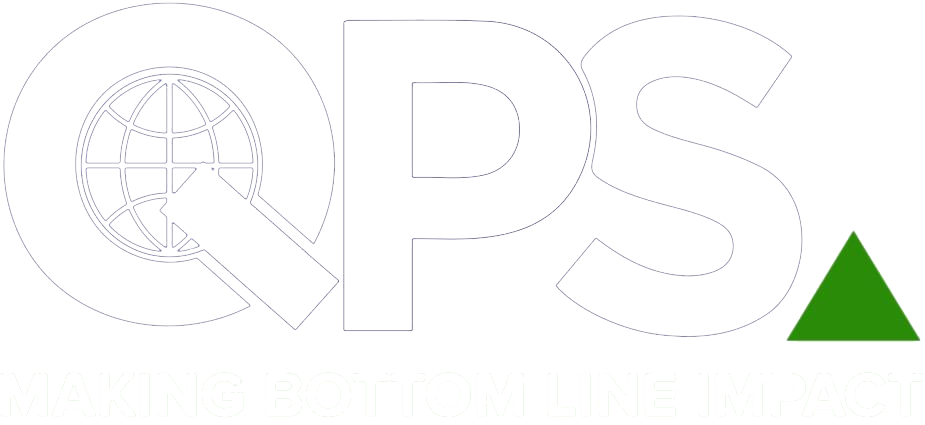Virtual Instructor-Led Training
Get certified or simply improve your skills with our virtual Instructors.
Categories
- Agile
- AI/ML
- All Courseware
- Application & Infrastructure
- Business Analysis
- Cloud
- Data & Analytics
- Design Multimedia
- Developer
- DevOps
- Dynamics
- End User Application
- IT Service Management
- Leadership & Professional Development
- Modern Workplace
- Networking & Wireless
- Networking and Wireless
- Office Applications
- Programming
- Project Management
- Security
- Virtualization
Vendors
- Adobe
- Agile
- Amazon
- Business Analysis
- CertNexus
- Cisco
- CMMC
- CompTIA
- Crystal Reports
- CyberSecurity Professionals
- Development
- DevOps Institute
- EC-Council
- ISACA
- ISC2
- Leadership & Professional Development
- Logical Operations
- Microsoft
- Microsoft Apps
- Microsoft Technical
- PeopleCert
- PMI
- Project Management
- Python
- Red Hat
- Scrum
- SHRM
- Six Sigma
- Tableau
- TCM Security
- Tracom
- VMware
- Web Development
- Workplace Fundamentals
Virtual Training
Microsoft Technical
In this learning path, you practice building model-driven apps by using Microsoft Power Apps. The skills validated include creating Dataverse tables, modifying forms and views, and configuring a model-driven app. The scenario in this experience represents real-world challenges faced by individuals with business-specific expertise who build model-driven apps.- 1 Day Course
- Live Virtual
$695.00Microsoft Apps
In this learning path, you will learn how to create custom copilots with Copilot Studio and will get the opportunity to practice your skills in a guided project.
- 1 Day Course
- Live Virtual
$695.00Microsoft Technical
How can you turn ideas into automated apps and dashboards, without writing a single line of code?
Microsoft Power Platform empowers users across departments to streamline processes, gain insights, and build custom business solutions with low-code tools.
In this course, you’ll explore the full capabilities of Power Platform, including Power Apps, Power Automate, Power BI, Power Pages, and Copilot Studio. You’ll learn how to build basic apps, automate tasks, and create powerful dashboards using real-world scenarios. Ideal for both technical and non-technical users, this training prepares you for the PL-900 certification and unlocks a future of smarter, faster digital workflows.
- 2 Days Course
- Live Virtual
$595.00 – $1,295.00Amazon
Choosing the right database service can make or break your cloud architecture. Planning and Designing Databases on AWS gives you the knowledge and hands-on experience to design data solutions that align with your application’s performance, scalability, and cost requirements.
You’ll explore the process of planning and designing both relational and nonrelational databases on AWS. Learn the trade-offs of hosting on Amazon EC2 versus using fully managed services, and dive deep into AWS database offerings including Amazon RDS, Aurora, Redshift, DocumentDB, DynamoDB, ElastiCache, Neptune, and QLDB.
By the end of the course, you’ll understand the unique capabilities of each service, how to evaluate them for specific workloads, and how to build secure, optimized, and future-ready database solutions in the cloud.
- 3 Days Course
- Live Virtual
$2,025.00Project Management
What makes an agile team successful? According to the Project Management Institute, teams using agile principles are more likely to hit deadlines, adapt quickly, and keep stakeholders aligned from start to finish. The PMI Agile Certified Practitioner (PMI-ACP)® certification is designed for professionals who apply agile across a number of methodologies—including Scrum, Kanban, XP, Lean, and hybrid approaches.
This PMI-ACP certification training course gives you the agile knowledge and exam prep tools to get certified and make an impact. The 3-day, instructor-led training course includes live instruction, a PMI-ACP exam prep course guide, mock exams, and six months of access to a digital training portal.
- 3 Days Course
- Live Virtual
$1,195.00 – $1,695.00PMI
The PMI Construction Professional (PMI-CP™) certification stands alone as the industry’s only globally recognized certification for construction project management. This PMI certification validates your expertise in leading complex projects, managing contracts, and navigating common challenges in the construction industry.
Our foundational course series delivers practical skills you’ll use immediately, covering everything from project communications to risk management. Whether you’re preparing for the certification exam or enhancing your current capabilities, this instructor-led course provides the foundation for your next career milestone.
- 5 Days Course
- Live Virtual
$2,495.00PMI
Every day, employers are asking more of their project managers to drive innovation and success at their companies. Possessing the core skills of project management is no longer enough. Project managers now need business and leadership skills as well. Project Management Institute Project Management Institute (PMI)® defines this combination of skills as the PMI Talent Triangle. Fulfilling the requirements of the triangle can seem confusing and complicated—but it doesn’t have to be.
We have created a 3-day virtual course, covering leadership, business, and technical topics to make the PMI Talent Triangle easy. Our content experts will provide you with everything you need to grow your project management core competencies while providing the necessary hours in each area to meet the PMI Talent Triangle PDU requirements. This series of classes contains topics specifically selected for project management development and is consistent with the skills described in the PMI Talent Triangle. At the end of this course, you will have the necessary skills and hours to satisfy the PMI Talent Triangle requirements.
This course bundle has been approved by PMI for 24 PDUs: 8 PDUs in alignment to Ways of Working (Technical); 8 PDUs in alignment to Power Skills (Leadership); 8 PDUs in alignment to Business Acumen (Strategic and Business Management)- 3 Days Course
- Live Virtual
$1,695.00PMI
Project managers who master risk-related concepts help organizations confidently navigate uncertainty—whether managing threats or seizing opportunities. According to PMI®, organizations with mature risk management practices meet their goals 2.5x more often and waste 13x less budget.
This 3-day PMI-RMP® certification training is designed for experienced project professionals and PMP® credential holders who want to build expertise in risk identification, analysis, response, and monitoring. The course follows the PMI-RMP® exam content outline and provides structured exam preparation, tools, and real-world risk management techniques.
- 3 Days Course
- Live Virtual
$795.00 – $1,695.00Project Management
If it’s been a while since you completed a PMP exam prep training course, don’t try to struggle by cramming for the exam on your own. Our instructor will guide you through the critical exam elements in this PMP crash course while providing tips for tackling some of the trickier concepts from the applicable versions of the A Guide to the Project Management Body of Knowledge (PMBOK® Guide) and the 30 other PMP exam references.- 2 Days Course
- Live Virtual
$1,195.00Microsoft Technical
As data acquisition, access, analysis, and reporting are interwoven with our businesses and lives, more and more data is collected about business and personal activities. This abundance of data and the computing power to analyze it has increased the use of data analysis and data visualization across a broad range of job roles. Decision makers of all types, including managers and executives, must interact with, interpret, and develop reports based on data and analysis provided to them. Microsoft Power BI software is designed for data analysis and the creation of visualizations. Data analysts prepare data, perform initial analysis, and create visualizations that are then passed to business data decision makers. These decision makers can use Power BI’s tools to explore the data, perform further analysis to find new insights, make decisions, and create customized reports to share their findings.- 1 Day Course
- Live Virtual
$395.00Microsoft Technical
Are you making the most of your data? 70% of business leaders say analytics is critical—yet most teams struggle to use it effectively.
Power BI: Dashboard in a Day is a one-day, hands-on workshop that introduces you to the full capabilities of Microsoft Power BI. Designed for business users, analysts, and anyone interested in data visualization, this course helps you go from raw data to compelling, interactive dashboards in just one day. Work at your own pace while having access to a live instructor for guidance and support.
- 1 Day Course
- Live Virtual
$595.00 – $695.00Microsoft Apps
Want to give your presentations more power and polish? This PowerPoint training course is your perfect starting point. Designed as a beginner-friendly Part 1 introduction, this one-day, instructor-led class teaches you how to use PowerPoint to create and deliver professional, visually engaging slides.
Through real-world scenarios and hands-on practice, you’ll learn to build a strong PowerPoint presentation using built-in templates, formatted text, graphics, transitions, and animations. You’ll also get familiar with PowerPoint for the Web, OneDrive, and the essentials of working in Microsoft PowerPoint as part of your Microsoft Office subscription.
- 1 Day Course
- Live Virtual
$295.00

